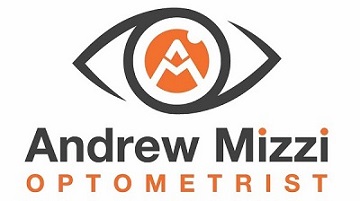 Dry, itchy, and irritated eyes are more than just an occasional annoyance—they could be a sign of dry eye syndrome. This common condition affects people of all ages and can impact daily life, making activities like reading, driving, and using digital screens uncomfortable.
Dry, itchy, and irritated eyes are more than just an occasional annoyance—they could be a sign of dry eye syndrome. This common condition affects people of all ages and can impact daily life, making activities like reading, driving, and using digital screens uncomfortable.
Understanding what causes dry eye syndrome and how to manage it effectively can help you maintain better eye comfort and long-term vision health.
What Causes Dry Eye Syndrome?
Dry eye syndrome occurs when your eyes don't produce enough tears or when the quality of your tears is poor.
Several factors can contribute to this condition, including:
- Ageing: Tear production tends to decrease with age, making older adults more prone to dry eyes.
- Screen Time: Prolonged use of digital devices can reduce blinking, leading to increased tear evaporation.
- Contact Lenses: Long-term use can contribute to dryness by affecting the eye’s natural moisture balance.
- Environmental Conditions: Wind, air conditioning, and low humidity can speed up tear evaporation.
- Medical Conditions: Certain conditions such as diabetes, thyroid disorders, and autoimmune diseases like Sjögren’s syndrome can lead to dry eyes.
- Medications: Some medications, including antihistamines and decongestants, can cause reduced tear production.
Common Symptoms of Dry Eyes
Dry eye symptoms can range from mild to severe and may include:
- A gritty or sandy feeling in the eyes
- Redness and irritation
- Blurry vision, especially after prolonged screen use
- Sensitivity to light
- Excessive tearing (as a reflex response to dryness)
- Discomfort when wearing contact lenses
Identifying these symptoms early and seeking professional advice can help prevent long-term discomfort and complications.
Best Treatments for Dry Eye Syndrome in Kingswood, Penrith, NSW
Managing dry eye syndrome involves a combination of treatments aimed at improving tear production and reducing discomfort.
Some of the most effective treatment options include:
- Lubricating Eye Drops: Artificial tears can provide quick relief by supplementing your natural tear film. Look for preservative-free options for long-term use.
- Prescription Medications: Your optometrist may recommend medications to increase tear production or reduce inflammation.
- Punctal Plugs: These tiny devices can be inserted into the tear ducts to help retain moisture and prevent tears from draining too quickly.
- In-Office Treatments: Advanced treatments, such as heated eye masks or light therapy, can target the underlying causes of dry eye syndrome.
Dry Eye Relief for Contact Lens Wearers
Wearing contact lenses can exacerbate dry eye symptoms by limiting oxygen flow to the eyes. If you experience discomfort, consider switching to daily disposable lenses, using lubricating drops, or trying specialty lenses designed for dry eyes, such as scleral lenses, which create a moisture reservoir over the eye.
Natural Remedies for Dry Eyes
In addition to medical treatments, several natural approaches can help alleviate symptoms:
- Increase Omega-3 Intake: Foods rich in omega-3 fatty acids, such as salmon and flaxseeds, can improve tear quality.
- Stay Hydrated: Drinking plenty of water helps maintain moisture levels in the eyes.
- Blink More Often: Taking breaks from screens and blinking frequently can prevent tear evaporation.
How to Prevent Dry Eyes
Preventing dry eye symptoms involves making small lifestyle changes to protect your eyes and maintain their moisture levels. Some preventive measures include:
- Limiting screen time and following the 20-20-20 rule (taking a break every 20 minutes to look at something 20 feet away for 20 seconds).
- Using a humidifier to add moisture to indoor air, especially in dry climates or during winter.
- Using wraparound sunglasses is particularly important for outdoor activities like cricket or beach volleyball, where exposure to wind and sunlight can exacerbate dry eye symptoms.
- Avoiding smoke and other environmental irritants that can contribute to dryness.
When to See an Optometrist for Dry Eyes in NSW
If your symptoms persist despite using home remedies, it may be time to see an optometrist. Persistent discomfort, frequent vision changes, and difficulty wearing contact lenses are signs that professional care may be needed.
Andrew Mizzi Optometrist, offers a range of solutions tailored to your needs. Visit us at Kingswood, Penrith to explore your treatment options.
